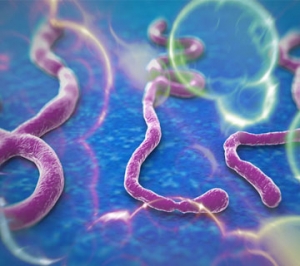 A
Medical Charity and two West African countries fighting the world’s
worst Ebola epidemic have criticized the World Health Organization (WHO)
for its slow response, saying more action was needed to save victims
threatened by the disease and hunger.
A
Medical Charity and two West African countries fighting the world’s
worst Ebola epidemic have criticized the World Health Organization (WHO)
for its slow response, saying more action was needed to save victims
threatened by the disease and hunger.Medical Charity MSF (Doctors Without Borders), which has been one of the most active groups in fighting the outbreak, said its spread had created a “wartime” situation in the worst-affected states of Sierra Leone, Liberia and Guinea. Nigeria is also facing a smaller separate outbreak.
Sierra Leone’s President Ernest Bai Koroma said his nation’s only two treatment centers were “overwhelmed”.
In neighboring Liberia, Information Minister Lewis Brown said Ebola-affected rural areas quarantined by troops faced serious food shortages.
“We need a more robust response to the nature of the disease and the way it is affecting us,” Koroma said in Freetown, adding he had delivered this message to the WHO, which is coordinating international efforts to try to control the outbreak.
The WHO said on Friday the death toll from this epidemic, first declared in Guinea in March, had risen to 1,145, as 76 new deaths were reported in the two days to Aug. 13 in the four nations affected so far.
“If our people are dying, the response should be an extraordinary response because it is an extraordinary situation,” Koroma told a news conference, saying his country needed more Ebola treatment centers and medics to staff them.
“Time is of the essence,” he added, saying he had seen the world respond to major humanitarian crises, such as the 2010 earthquake in Haiti, and West Africa needed similar help.
Fear of the virus, which causes fever, vomiting in its advanced form, severe hemorrhaging and organ failure, is curbing business in Africa and threatening to taint the continent’s image as a rising economic star.
In Liberia, which like neighbors Sierra Leone and Guinea have deployed troops to cordon off a tri-border zone which has the highest concentration of Ebola cases, Brown said his country also needed more health personnel and aid.
NEWS GENESIS (C) 2014 All rights reserved. This material, and other digital content on this website, may not be reproduced, published, broadcast, rewritten or redistributed in whole or in part without prior express written permission from News Genesis.


 11:32
11:32
 Unknown
Unknown
 Posted in
Posted in










0 comments :
Post a Comment
Love to hear your opinion!